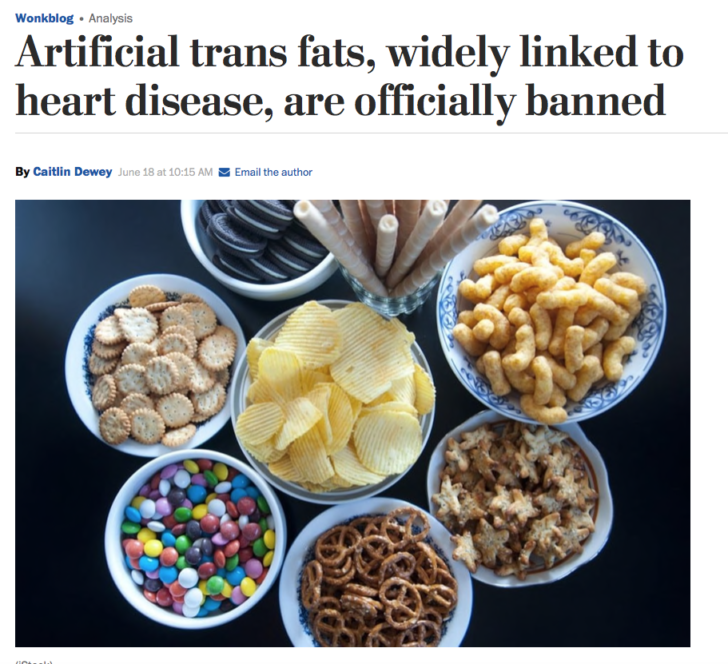More evidence the public health nannies have been lying to us for decades.

Continue reading Pass the salt: Study finds average consumption safe for heart health
More evidence the public health nannies have been lying to us for decades.

Continue reading Pass the salt: Study finds average consumption safe for heart health
The FDA finally banned trans fats in processed foods yesterday. Here is my original 1999 takedown of the junk science behind the trans fat scare.

Continue reading FLASHBACK: Fear of Margarine — The Trans Fat Myth
The junk science-fueled war against soda continues.

Continue reading Claim: Drinking soda, fruit juice hurts memory
Q: How do you know when trans fats researchers are lying?
A: They publish papers like this one.

Continue reading Claim: Trans fat bans reducing heart attacks
I featured the fish oil con in my 2001 book “Junk Science Judo: Self-Defense Against Health Scares and Scams.”
Junk science kills. Not food.

Continue reading Claim: Unhealthy diets linked to more than 400,000 cardiovascular deaths
The dietary salt scare rolls on despite reality.

Continue reading Claim: Sodium intake high, rising among people with high blood pressure
There is no such thing as magical food. Vegetarian breast cancer victim Linda McCartney is a case in point for this sort of junk science.

Here’s the problem: “This new insight appears to be particularly important in primates and likely is translatable to humans.”

IMAGE: A 2009 IMAGE OF RHESUS MONKEYS IN A LANDMARK STUDY OF THE BENEFITS OF CALORIC RESTRICTION. THE THEN 27-YEAR-OLD MONKEY ON THE LEFT WAS GIVEN A DIET WITH FEWER CALORIES.
Continue reading Food nanny nonsense: Calorie restriction lets monkeys live long and prosper